#why does the writer -- despite all evidence to the contrary -- still have some faith in the director's better instincts
Text
No one:
Absolutely no one:
Me: Is there any explanation for the quasi-friendship between the megalomaniac film director and the diffident writer in Jackson's King Kong remake if they aren't exes?
#king kong 2005#this would explain SO MUCH#(does this movie deserve the mental energy i am giving it? probably not)#why is the director comfortable LITERALLY KIDNAPPING the writer#why does the writer see the director's tragic flaw as an ability to destroy the things he loves?#why is the director so confident in what the writer will do#why does the writer -- despite all evidence to the contrary -- still have some faith in the director's better instincts#why does his voice almost crack when he confronts the other man's moral inadequacies?#everything makes more sense if they know each other in some ways with breathtaking intimacy#and in others not at all#if jack is a bi disaster this might also explain some of his... everything#flamboyant romanticism + complete disinterest in following the expected scripts for het romance (either in writing or in life)#okay i'm done now#perhaps in some future time one (1) other person on this website will ALSO wonder this and find this post and a kindred spirit
36 notes
·
View notes
Note
Thanks for being one of the last blogs left to discuss the show to the end. I understand the hurt and betrayal people feel right now. I feel it too, but as a new fan who binged 1-6 back in March, I keep thinking about the crazy moments that were reversed or resolved at the end of seasons. If it hadn't been for Jason's word of God post or the anon accounts, I would have scoffed at this "death", b/c it seemed like a setup. I may not like JR, but I need to see how he ends this before I criticize.
Yeah. I know exactly what you’re talking about.
I think in fandom, we have a hard time adjusting to the immediate storyline, and we forget the long term one. And this DOES seem like the story is not done. Usually when they die, it’s confirmed that they die. A hole in the head. That blank eye. Blown out into space. They die in someone’s arms. We see their last breaths. A dead body or grave. The light goes out. In this, we don’t see that. We see Clarke ripped away from the scene, her last sight the result of what she did.
No conclusion, no resolution, no CONFIRMATION-- in narrative anyway.
On social media we got goodbyes. But I have NEVER used social media as confirmation for canon. I can ONLY accept canon.
And canon is up in the air. It looks bad, I’m not gonna lie. But it isn’t confirmed, resolved, or concluded.
It’s the rumors that give us a “reason” for the lack of conclusion. And I can’t say that the rumors don’t explain it, because they do make sense.
But they’re still not canon.
Bellamy also died at the end of season 1. But he didn’t die. Clarke died at the end of season 4... we saw her, remember? Covered with radiation sores and falling to the floor, but she survived. Not that B knew. Speaking of season 4, Octavia also died in season 4. We saw her fall from the cliff, stabbed, and B collapsed on finding out. Season 6 Clarke died again. We saw the lights go out that time. No one believed it. Bellamy died at the beginning of season 7 too. No one believed it. Seems like we stopped believing when they die.
Within the show, they have the capability to save him. Bardo has a high level of tech, including medical tech, a disciple has his hand on Bellamy’s chest in the last scene, and they have immediate access to the medical labs by going through the anomaly.
The only thing that makes everyone take it for certain is the social media. Even if it looks terribly damning, I can’t take that as evidence.
STICK TO THE TEXT.
Yes, I am going to watch the next three episodes. I didn’t commit to all this hell to back out now.
The hardest thing to understand right now, for me, is not that B died. I expected him to die. I think I had him (and Clarke) at a 90% or 95% chance of dying this season. It’s the WAY it happened, with that lack of resolution. And the splitting up of Bellarke. That Clarke did it.
It seems to ruin the long term narrative of Clarke being the hero, Bellarke saving the world together, Bellamy saving Clarke while Clarke saves humanity, Bellamy’s character development and learning to let those he love make his own choices, Bellamy being a leader, Clarke understanding that some things are not worth it.
Like, there are TWO options that make sense with all this...
Bellamy isn’t really dead and this is a fake out to raise tension... which makes sense with the narrative and the way the story has been told for 7 years.
OR
Bellamy is dead and JR totally betrayed his narrative, Bellamy, Clarke, Bob, and the audience because he’s a mother fucking egotistical jackass. because even if bob quit for health reasons he didn’t need to tank the story to write him out.
Now, there’s been a fandom narrative of JR being a fucking egotistical jackass who is taking vengeance on fandom and various actors. So that slides very neatly into what the antis believe.
But that narrative never really fit the story on screen. I mean, I think yeah he’s probably an egotistical jackass, but he always put the story before anyone else. It was HIS story and he wasn’t going to let anyone tell him what to write. And he would kill off characters and doom ships and let story lines fade off into oblivion for ONE narrative, and that’s what he just killed, or appeared to kill in the last episode. So why would he now sink it? IDK. it’s weird and it makes no sense.
DID he just give up in the last season because he moved on to the other pilot-- which has no guarantee of being picked up, and seemes to be waiting on how THIS story does? Why would he do that when his name will be based on THIS show. And when we have a glaring example of showrunners who did that with GOT and ended up LOSING huge deals for new shows because of the mess they made. That seems remarkably stupid to not learn the lesson and to go down the exact same path, even to having one love interest kill the other, who was one of the main heroes.
Isn’t that WEIRD? IS JR COMPLETELY STUPID? Despite years of evidence to the contrary where he seems pretty savvy? Could he possibly be using that fandom fear and belief to make everyone believe he killed off Bellamy for no reason? Would he USE a social media account to manipulate viewers into having emotional reactions to the story by lying??? WELL NO. He’s not lying. He says this was Bellamy’s death but he doesn’t say he stays dead, or that Bardo can’t bring him back. Remember season 2? Lincoln died and they brought him back. And when he thanks Bob for his 7 years, that also is not a lie. Bob gave him 7 years. We’ve seen Bellamy’s story for 7 years. Whether it ends here or continues for another three eps. It’s definitely implying that he’s not coming back, but it’s not lying if he does come back.
Well, I don’t know. Maybe JR is completely stupid. I’ll wait to see if he stick the landing, but my faith is low. It’s just all very weird and makes no sense in a story that has always made sense if you follow his storyline. And as a writer I just don’t know why you would tank your long term story three eps before you finish it up. And he DOES love to scare us and make us feel anguished and kill of our mains and thinking ALL IS LOST before finding out that no indeed, all is not lost and our heroes can and do come back and reach victory.
THAT fits his story. But maybe he’s so desperate for us to believe it’s over that he’ll mislead us IRL to make us believe his plot twist in the narrative.
Can’t say I wouldnt prefer it to be a fake out, but if it is a fake out he’s still a HUGE fucking egotistical asshole.
I just can’t believe it until I see the canon. I need to see the conclusion, because this seems like a total trashing of the story, and that just makes no sense for what we’ve seen for 7 years. Actually, when I think about all of this, it gives me a little faith in the story back. Not a lot, but a little. BECAUSE IT MAKES NO SENSE. It is PURELY the fandom narrative that JR is an egotistical jackass and doesn’t fit with the canon narrative.
Listen, I don’t think I’ll ever get involved with a fandom again. it ruins the story. All this gossip and negativity and shipwars and harassment and I don’t even LIKE the behind the scenes tales of who did what to whom. I just want to watch the stories and enjoy what I enjoy. I wish we could talk about it all without creating this huge writhing mass of maggoty decay as so called fandom attempts to take apart everything good about a show we’re supposed to love.
45 notes
·
View notes
Text
What Episode Luna is Going to Be About (Or... how to drastically change a character)
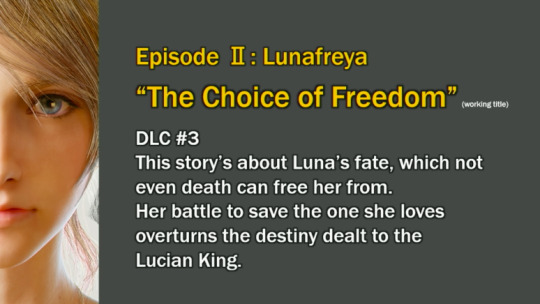
This post is going to be a theory, a critique, and a follow-up of my previous post, Why Lunafreya Can’t Be Fixed. In this previous post, I go into some serious detail about how a character like Luna is not possible to fix based on how the writers have designed her. After the new DLC line-up reveal, I maintain this position, in light of my own three theories about what this episode is going to be about. I do not think that my theories are of tin-hat-conspiracy quality. Professionally, I believe in organic and deeply human writing and storytelling, (I can’t help it, I am classically trained and hold degrees in writing and literature), and I try to maintain this standard in my theorizing. I will discuss what my theories will be about, what this means for her overall character “growth” or “development,” and what this means for the direction of these new DLC from a writer’s standpoint.
TL;DR: Luna is going to get seriously retconned, and this is the only way for the writers to pitch a meaningful story to tell about her.
1) Ghost Luna
I wanted to get this one out of the way because it is the most far-fetched, yet the easiest to tackle from a technical development standpoint (because they do not have to write an alternate reality where she lived, which takes more resources). The statement that her fate is something that “not even death can free her from” really bothers me here. What is the reason to include this statement in the episode description? Ravus goes as far as to mention this in Episode Ignis. Does this mean we are going to play Ghost Luna? How is that going to play out exactly, what are the game mechanics? Are we going to fight pre-demons in the Astral plane? How does this mesh with her ghostly appearances?
Keep in mind that her ghostly appearances have already been retconned in Royal Edition, although there is no indication as to what the limits of her appearances are. Before, it seemed like her appearance was unnatural, hence why she disappears so quickly. In Royal Edition, we suddenly have a talking ghost with magical powers, and no discernible reason why she would disappear then.
Then there is the story arc in this option. A ghost, by normal folkloric standards, will continue to have ties to the earthly realm because of deep-seated regrets, or unfinished business. If she has unfinished business as an Oracle in death (and has the power to make shit happen) then.... why didn’t she do anything for the 10+ years that Noctis was asleep? If she regretted leading Noctis like a lamb to a slaughter, why support him in Royal Edition? All of these options would mean a serious retconning of her by illogical standards.
Now let’s discuss two more believable options...
2) This is a story about her activities during the events of Final Fantasy XV
In other words, this is going to be about what she is doing during the base game. I have already discussed in my previous post that there isn’t much of a story to tell in this aspect, which means that this would require some serious retconning, in light of this sentence: “Her battle to save the one she loves overturns the destiny dealt to the Lucian king.” This statement REALLY bothers me.
First of all, we do not see her make any action to save Noctis from his fate in the game. His fate was to die. She didn’t do anything to thwart this, and IF ANYTHING, egged him on in Royal Edition. This is also emphasized by the fact that she knew he was going to die (I mean really, her crying about never seeing him again, Gentiana talking to her about how Regis cried over the fate of his son, Pryna carrying the prophecy of him dying, etc.). She knew, and she lead him to slaughter anyway (that is not love, btw).
So what does it mean that she wants to save the one she loves, and this overturns his fate/destiny? If we are to keep the canon of the original game, and if this takes place during the same timeline as the game, then this means that she didn’t know he was going to die and has decided to do things behind the scenes that we didn’t know about to stop his fate. Which would be the most bullshit retcon on this list (SINCE SHE KNEW) and quite defiant of the logical understanding of her character and her role in the game. This leads me to discuss some of my intuitive (and possibly my most tin-hat) thoughts about her character development, and how she was built the way she is (from a writer’s perspective). This is where I will strongly criticize the approach that Hajime Tabata has taken with her.
I do believe that Tabata is very sensitive about criticism over Luna. It’s why all of the recent additions and changes to her address her most vocal critics. One of the most vocal criticisms is that she and Noctis are not in love, so he has to hammer away at a dead horse to the point of obnoxiousness (such as giving her the cover of Royal Edition, the repetition and literal spelling-out of her love for Noctis, the update of her train scene with Noctis where Tabata felt the need to make it more dramatic, naming songs attributed to NoctxLuna like “Lost Love,” “True Love,” and “Moonlit Melodies,” etc.), and his marketing decisions that suggest this major role that she does not have in the game (Luna edition of the PS4, song lyrics that mention her, her strong appearance in most official art, Luna edition of the NVIDIA harddrive, and on and on and on...). It’s almost as if her PR is what emphasizes of her importance in the story, because the actual story does a shit job of doing it.
Another common criticism of her is that she is evil for leading Noctis to his death without telling him. Keep in mind that Luna is essentially designed to be perfect and free from criticism. Tabata tries to legitimize this by making everyone in the world either adore her, or hold her in high regard. This is not a creator that understands human complexity, and the way he keeps throwing her in our faces and plastering her in all of the advertising, especially in Royal Edition, when she had four minutes of screen time, and when she is still inconsequential, is an ego trip on his part. A writer/creator/director is not supposed to do that. Furthermore, the fact that he felt the need to spell out her love for Noctis is insulting to the player - yes, we can tell that she loves him, we aren’t dumb. Spelling it out doesn’t validate their love or convince critics that it’s real.
I do not think, therefore, that he can tolerate such criticism over her and her relationship to Noctis. Which is another problem with this retcon: if she still knew that Noctis was going to die in this story arc, and decides to save him from it, then she ultimately makes a giant turnaround against her religious indoctrination and defies the gods, which is in strict contrast to what we know of her.
I mean, we are talking about a character who is so involved with her religious indoctrination that she gives a speech to a public, telling them directly that the gods are watching over them, minutes before she wakes one up and it destroys the city and subsequently kills a bunch of people. We are talking about a character whose religious indoctrination is so important to her, that this is THE ONLY THING SHE TALKS TO NOCTIS ABOUT - as children, in her death scene, and in their new reunion. Despite the Astrals’ abuse of the people, she still has delusional blind faith in their protection anyway and in spite of obvious evidence to the contrary, so it doesn’t make sense for her to defy them.
I also think that the development team does not have the resources to address the quagmire that is the Astrals, which is why they have already been retconned. Attributing all of the ills of the world to the Astrals, and blaming them for the Starscourge (being that their falling out was thought to be the cause of it) cannot be an acceptable criticism, because then it means that the development team would have to explain why Noctis would decide to die for them when he was commanded to. They don’t have a good reason for this if the Astrals are depicted as the cause of the whole problem. So the blame was shifted to Ardyn in the 1.16 patch, and Ifrit became more of a sympathetic figure.
And here is where I touch upon another flaw in her overall character design that I did not touch upon in my previous post. Blaming the gods for the Starscourge also puts blame on Luna for having faith in such abusive figures, which is also unacceptable because she is designed to be perfect. It is not acceptable to question Luna’s beliefs because the game paints her to be a character that is righteous about everything that is happening around her, and she has to be correct about the prophecies (and Florence + the Machine’s song “Too Much is Never Enough” hammers this away by saying that Luna is “right” for doing what she did). Nyx is the only character to criticize her and Regis, and she “corrects” him by implying that the countless sacrifices made in Insomnia are needed for the good of the world. The concept, then, that she will defy the gods is very strange. Ravus defies her beliefs, and look what happened to him. The Glaives in Comrades defied the gods by abandoning their king, and are called heretics or the like in need of redemption. You don’t defy the gods, which means that Luna, as their official bitch spokesperson, cannot be wrong. In other words, Luna defying the gods in the canonicity of the original story can’t happen without it being a terrible contradiction.
Which leads me to...
3) This is an alternate reality where Luna is the most retconned
By alternate reality, I can mean different things. She either lives in Altissia, or she makes different choices by defying the gods altogether and not go down the same path that she did in the game (although, defying the gods in this alternate timeline will then open its own can of worms that will have fans debating about their use and purpose in the original...).
This is arguably the easiest way to make her consequential to the plot (for more on her lack of importance to the story of Final Fantasy XV, please read ooc-but-stylish’s post on her plot progression, which is much more eloquent than I can ever hope to be). It is interesting here how her DLC is titled “The Choice of Freedom,” another sensitivity to the criticism that Luna had no actual choice in the game because she behaved as a pawn to the gods, and just kind of did whatever the plot told her to. I address her lack of choice in my previous post, as well as ooc-but-stylish.
I do believe this is also a reaction to fans’ desire for her to be selfish (which is strange - it is already selfish of her to not tell Noctis anything, which she had many chances to do so because they shared a notebook). People were expecting her and Noctis to defy their fates because they were unfair, and find another way to bring light back into the world. If the option to defy the gods is what fans want though, then they are asking for a retcon. I have discussed the possibility of putting Luna in a catch-22 in my post, where she is changed beyond what is already understood of her.
This kind of suggests that if we were to make her consequential to the plot, and take action that would seriously change the events of Final Fantasy XV, then this means that she will be changed to the point where we stop recognizing her as the Luna we know, and change into a completely different Luna (and not in the organic-character-development-way).
Looking back on my previous post, I realize that Kingsglaive Luna was very reckless and suicidal, which makes no sense in comparison to Game Luna, who is concerned about completing her role as Oracle (nor does it make sense... how does losing Regis and Insomnia mean that she lost everything if she knew that Noctis had already left? If she died being so reckless, wouldn’t that mean that she can’t do her duty?). Anyway, I am trying to say that if she changed that much, and being that she will continue to change so much, we will certainly have a third Luna in our hands, as opposed to a character learning throughout her journey and making changes to her own priorities.
I said in my previous post that it is not possible to develop Luna for proper character development, and I do believe that this option is the only way to attempt this. This doesn’t help her apparent uselessness, however - if she is still inconsequential to the original plot of FFXV, then this retcon does not justify it, nor will it fix her.
This option also supports the concept of coming close to a grand finale that supports an idealized ending for the characters, although it will take the most work. This option would therefore be the build-up to the payoff that will then become Episode Noctis (meaning, Episode Luna is going to put all of the alternate new plot into place that Episode Noctis will solve).
So then, here are the common themes that address all three options...
Her relationship with Noctis will still need some serious work, and spelling it out isn’t good enough. There’s a good reason why there are so many Nyx and Luna shippers out there - it is because they have what fans interpret to be sexual tension between them, and they collaborate with each other. I have already discussed in my previous post why a relationship between her and Noctis will not add to her development because it isn’t possible to develop her based on her character arc. At the same time, I do not believe that putting more time and effort into building their relationship will make much difference, because then it continues to repeat certain things that we already know: one, that she is obsessive over Noctis, and two, that she cannot exist outside of Noctis. The former means that her relationship with Noctis is toxic and abusive: rsasai has an amazing post about why this relationship is psychologically damaging, and making them more romantic is not going to change this. I do not believe that the writers will have the resources to address their most pertinent problems, either.
And shall I repeat that she cannot exist outside of Noctis? Holy shit, every single official description of her is tied to Noctis, from game manuals, to the official website, to the movie description, to the Ultimania. The idea that Episode Luna is therefore necessary to her character development is a bit too optimistic in my opinion, considering that it is truly going to be about Noctis anyway.
Furthermore, fans are optimistic because Terada will be directing these new DLC. This is fair, and yet, unfair. Yes, Episode Ignis was amazing. However, I cannot attribute writing credits to Terada’s involvement because Ignis’ story arc was already decided before Episode Ignis went into production - it has to be, in order to start the actual pre-development process. What can be attributed to Terada is the alternate ending... which most of us can agree has a serious degradation of writing quality in comparison to the main storyline, and seems like it was rushed.
I also have to emphasize that I personally believe that Episode Luna, and therefore, Episode Noctis, are going to be the alternate reality that the developers are alluding to. Which means that my initial post about her being un-fixable, and having no story to tell, is essentially on point. They didn’t have a story to elaborate about her in the canonical storyline, so they were forced to write up an alternate ending in order to make sense of her character and bring in some development. When you contrast these two vague episode descriptions with the detailed ones of Episode Ardyn (yay!) and Episode Aranea (as long as Ravus is in it, I’m good - but no, seriously, what is lacking in Ravus’ development is knowing what exactly his relationship was with the empire), then it really pushes my belief that Luna and Noctis will be the alternate reality.
All in all, she is still a mess, and retconning her like this will not decrease her controversial standing in the fandom.
#lunafreya nox fleuret#episode luna#final fantasy xv#luna critical#anti lunoct#honestly fuck this character#at least take this as a lesson as to what NOT to do with your characters#please be logical with your characters#give me more ravus
111 notes
·
View notes
Text
The Vindication of Venom Part 12: Appendix and Conclusion
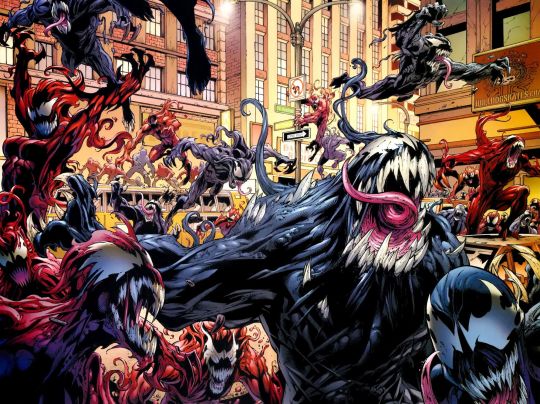
Part 11
There were numerous side points I wished to make in the main parts of this essay series. However since they would have derailed my central arguments or else didn’t really address the central questions I proposed I cut them. But I didn’t want to simply throw them away or present them altogether out of context for this series.
As such I’ve included them below alongside my conclusion to this series.
Power Trip
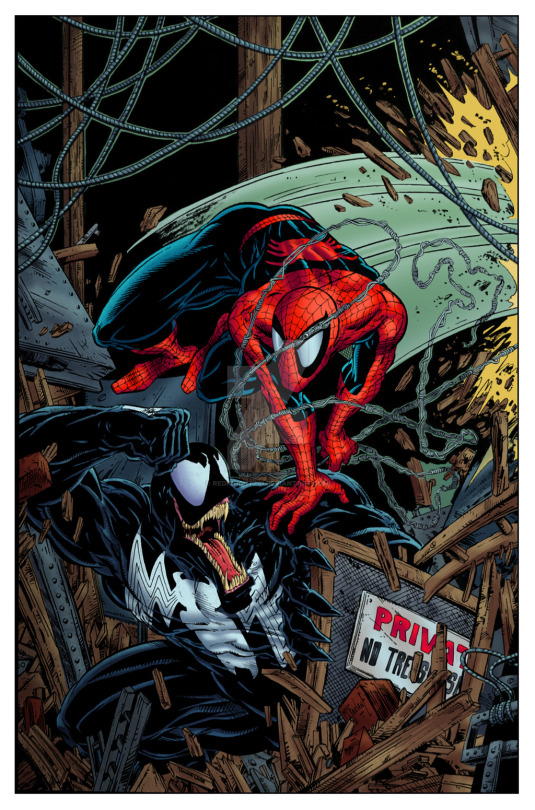
An important aspect to consider in Brock’s portrayal in ASM #300 is his callousness and general attitude towards violence.
When it comes to violent acts (or even just the prospect of them) Brock reacts with humorous, delight or at times nonchalance.

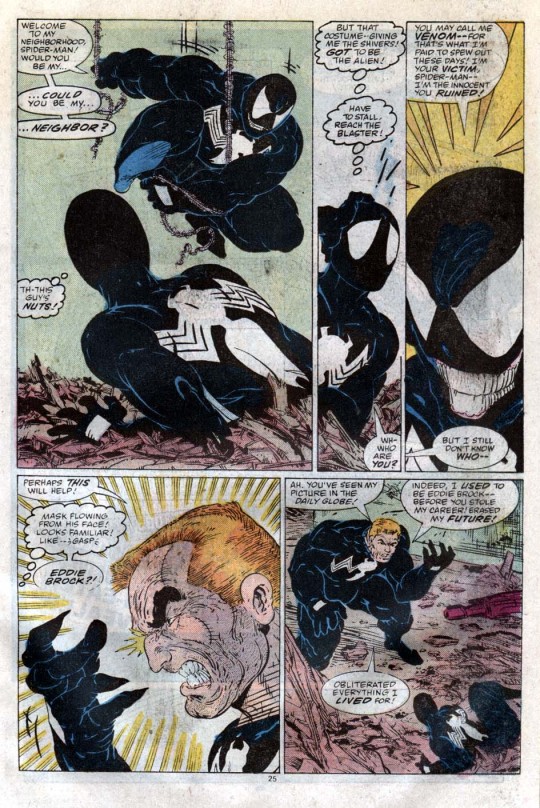
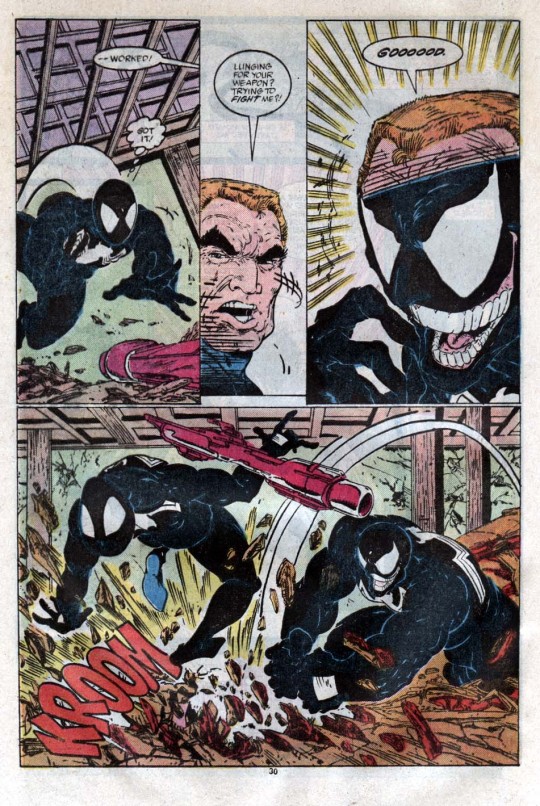



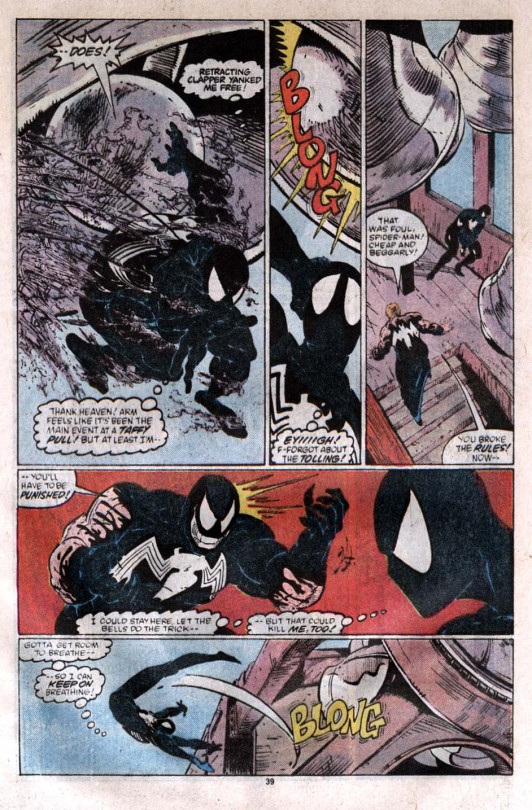
I’m not suggesting Brock was always like this as evidence of him always being a twisted person. Rather I think he developed these approaches towards violence from a few potential places.
The easiest explanation for it would be that his actions and attitudes are all part and parcel of his continued delusional state. He’s so out of touch with reality he no longer can perceive the horror or immorality of his violent acts.
Potentially his attitude is an outgrowth of his long-term furious workout regime where he visualized himself performing violent acts on Spider-Man over and over again as he obsessively exercised.

Visualization can have a powerful effect upon one’s actions and mind, especially when done repeatedly and with such fervour as in Brock’s case. Remember he was also looking at pictures of the person he hated to motivate him.
However I’d suggest the more likely (or most prominent) explanation is that upon bonding with the symbiote Brock went on a massive power. As an extension of this his own delusions and his desire for revenge would’ve been further fuelled through the acquisition of raw, tangible physical power. Such an experience also wouldn’t have helped if Brock were already somewhat narcissistic (see his proclamations of his journalistic skills and respect).
After all, many of Spider-Man’s villains have had their egos explode once they acquired super powers. Doctor Octopus is a prime example if one were to re-read Amazing Spider-Man #3.

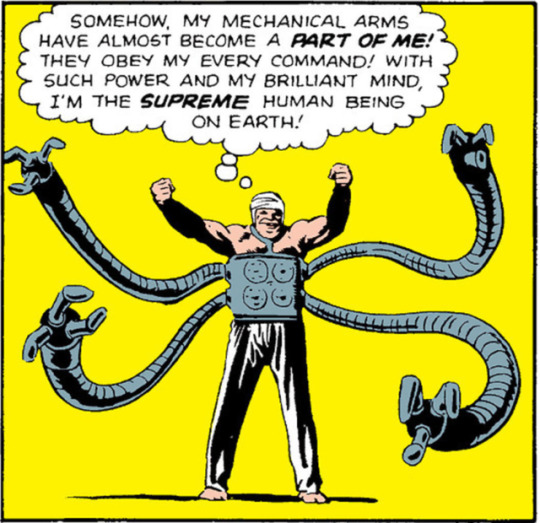
Whilst Doc Ock might be excused on the grounds that his origin was created in the 1960s, in 2000 story ‘Revenge of the Green Goblin’Norman Osborn’s origin was recounted and telling the readers that he felt himself above mortal men by virtue of his newfound super strength.
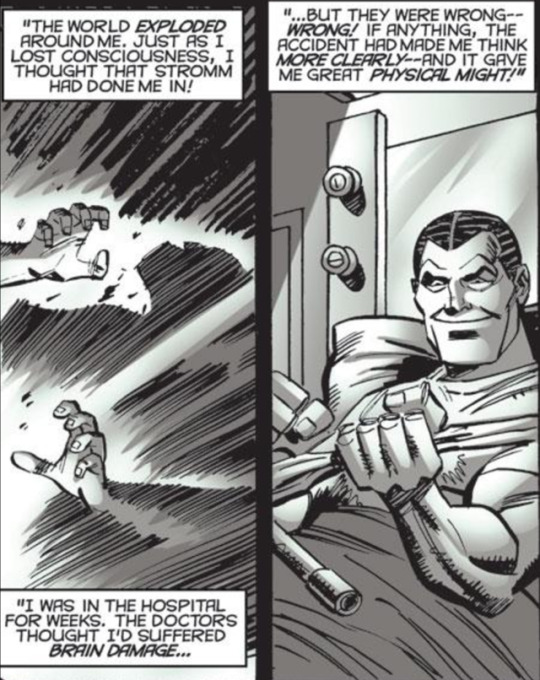

In fact Spider-Man himself goes on, if not a power trip, then at least a radical inflation of his ego upon gaining his own powers. He talks about how much better the powers now make him and how above the mockery of his peers or petty concerns for other he is. This is even featured on the cover of his first appearance.
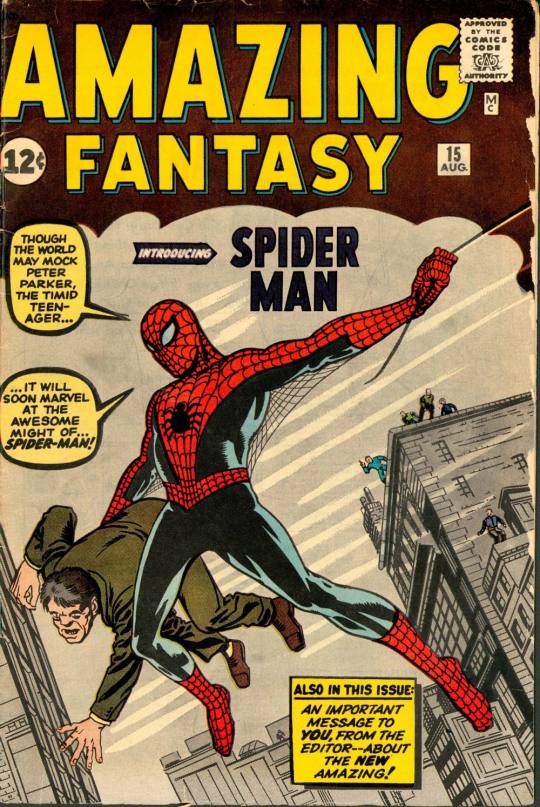


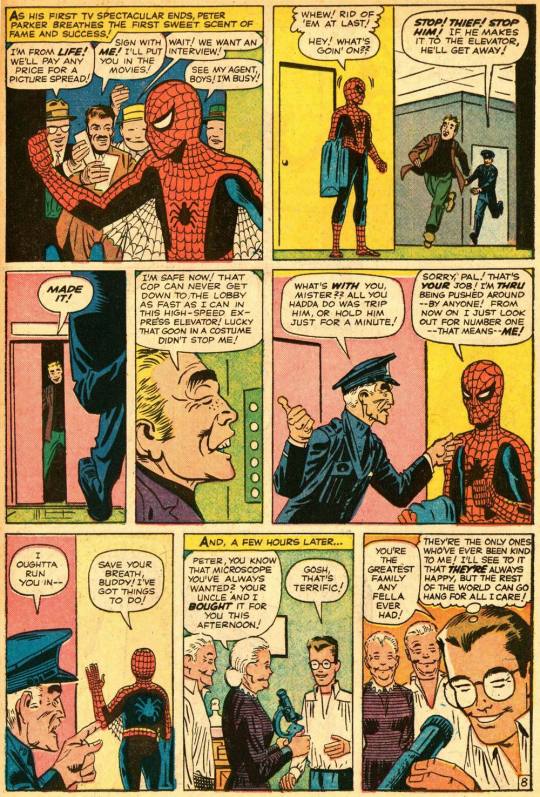
To an extent one might argue that such a power trip is natural for most human beings. Indeed having superior physical power is a dream and desire engrained into the collective consciousness of all mankind. It is a very big reason why we have mythic figures such as Heracles, Sampson and even our modern day superheroes. And those with power (physical or otherwise) often times feel it entitles them to assert their wills and dominate others simply because they have the means to do so. Might makes right.
Power trips can prove particularly poignant for individuals who’ve lived with a sense of helplessness/powerlessness in some way in their lives (especially if their new power is physical in nature). Such people who obtain power will almost inevitably see their egos inflated and this could include a presumption in (and further entrenching of) their own righteousness. Part of that could involve a tweaking of the facts (or their perception of them) to suit themselves.
In the wake of the Sin Eater scandal, Brock had lost his career. He’d lost the degree of ‘power’ he could assert as a journalist. He was forced to seek out work from writing drivel he found repugnant and demeaning. He lived in a run down area. And to him all this happened because some asshole butted into something that wasn’t his business. And that person was nothing less than some anonymous, inhuman ‘hero’ with powers beyond mere mortals like Brock (meaning he had little hope of exacting retribution). Eventually he was in such despair he was seriously considering ending his own life. Under these circumstances I think it’s safe to say he felt incredibly powerless.
So when the symbiote came along and abruptly handed him immense power, power in fact similar yet greater than the person he blamed for his woes, inevitably there was going to be an adverse affect upon his mind, his actions and his very perception of himself and his life.
The raw physical power the symbiote lent him gave him free reign to his violent inhibitions. Brock likely he felt that the usual constraints of society no longer applied to him, hence not only his violent actions as an outlet for his rage but his casualness, joy and twisted humour in relation to those acts. When it comes to Spider-Man he was also handed another form of power, knowledge of his secret identity and the power to render Spidey’s greatest defence utterly useless, both of which (as far as he knew) were profoundly unique to him. The idea that the very act of gaining this immense power affected his mind is hinted at in ASM #300.

After being handed the means to free himself from his wretched existence and make his fantasies reality Brock became akin to a kid in a car on their way to Disney land. Excited and delighted at the prospect of getting to make their dreams come true. This is rather nicely reflected in the second Venom story, specifically the climax in ASM #317.
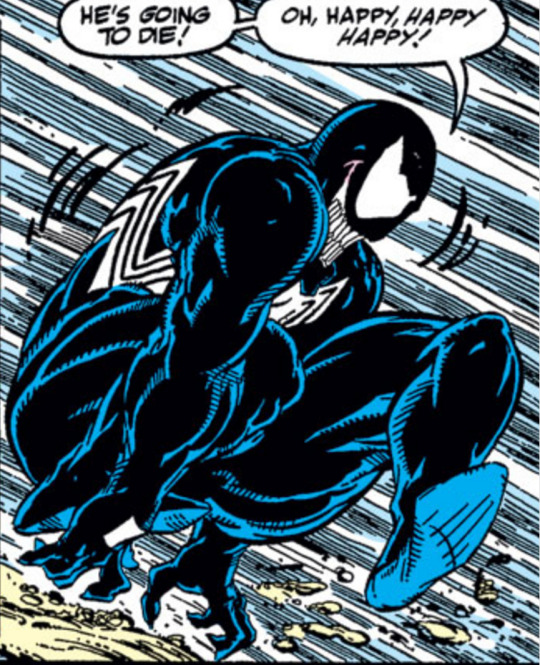
On the other hand his humour could’ve been a by-product of his experience as a writer where he might have needed to be witty or funny at times. Or maybe he just had a particular dark sense of humour.
However I think it makes much more sense that his attitude towards violence is more poignantly tied to what I discussed above. In his mind the rules of regular society and ‘lesser people’ (i.e. weaker non-super powered people) no longer apply to him. His power (and his ‘suffering’) puts him above all that, so it doesn’t matter if some people get hurt along the road to his personal gratification; he is justified.
Furthermore you could also argue that his constant visualization of Spider-Man’s violent death likely desensitized him to the idea of violence to some extent.
Echo Chamber

In Web of Spider-Man #1 we learn that the processes of symbiosis cuts both ways meaning the symbiote could itself be influenced by it’s host.
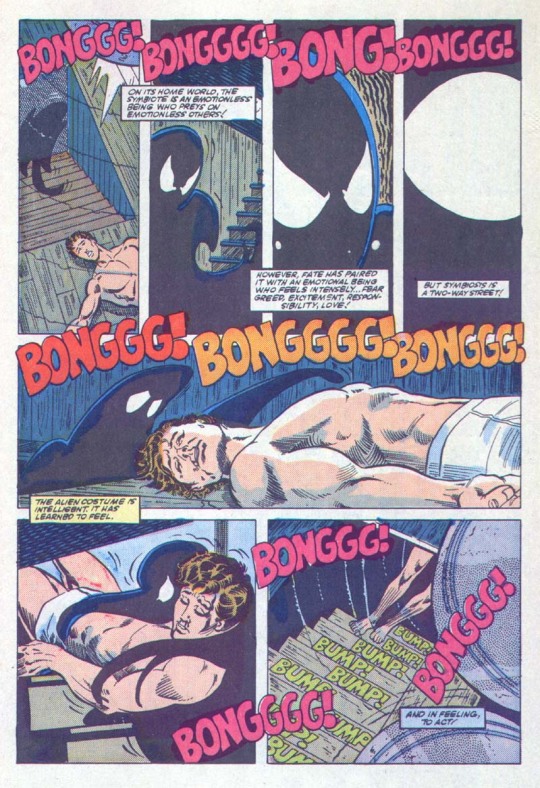
For what it is worth this is somewhat corroborated in Spider-Girl #100.
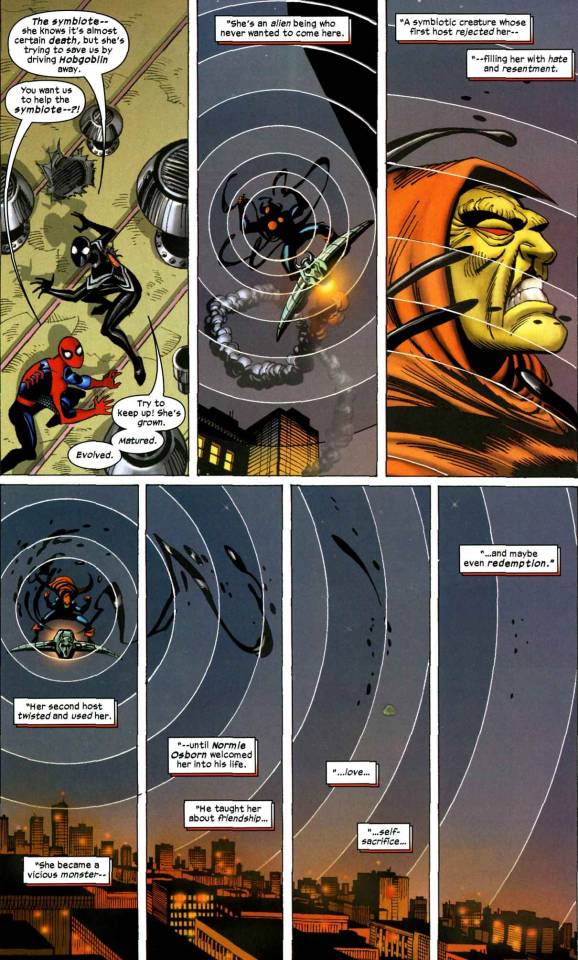
Though Spider-Girl exists in a different universe from the mainstream 616 version of Spider-Man it had an identical history to the 616 Marvel Universe up until about the stories published in 1998. The series was also shaped mostly by veteran Spider-Man writer/editor Tom DeFalco, who is recognized as an authority on Spider-Man if there ever was one. DeFalco actually penned ‘Spider-Man: the Ultimate Guide’ back in 2001, at the time the most definitive Spider-Man information book ever.
Spider-Girl #100 was itself not only worked on by DeFalco but also Ron Frenz who along with DeFalco actually introduced and explained the symbiote’s origins back in the 1980s.
However yet more corroborative evidence is provided in Brian Michael Bendis’ run of Guardians of the Galaxy as well as Robbie Thompson’s run on Venom: Space Knight, both of which assert that the symbiote was ‘corrupted’ through exposure to it’s hosts, something common to it’s species.



This can go some way to explaining the symbiote’s hatred Spider-Man despite it also caring about him and attempting to save him in Web #1. It was influenced by Brock’s own hatred of the wall-crawler.
However since ‘symbiosis is a two-way street’ and we see clearly Brock talking to the symbiote in ASM #300 it is possible Brock could’ve ‘felt’ the symbiote’s hatred for Spider-Man. This then could have validated Brock’s own hatred for Spidey and caused him to double down on his warped interpretation of events.
If you accept that Brock and the symbiote could to some extent influence one another, this could then be said to have created a kind of echo chamber, or rather an ‘amplifier chamber’.
That is to say Brock’s hatred for Spider-Man causes the symbiote to hate him more. Then the symbiote reflects those increased feelings of hatred back onto Brock. This would then magnify Brock’s hatred for Spidey and he’d reflect that back onto the symbiote, and the cycle would begin again. The end result would be both individuals have their hatred amplified and their rationales for said hatred continually validated. These notions were also implied in the above image.
Role of Religion

Eddie Brock’s religious beliefs cannot be dismissed when analysing the character.
To begin with he was a man in despair when he encountered the symbiote. He was considering suicide and though he couldn’t go through with it, he was still in a state of helplessness. The symbiote’s arrival must have seemed to be a kind of miracle to him. He even talks about their meeting using religious language.
He was a man of faith in his darkest hour praying for help in a holy place when and then from above him the answer to his prayers appears. He gets a constant, affectionate companion who shares his deepest darkest desire and gives him all the means he could ever need to fulfil it.
For a desperate religious person how could Brock not see this as a sign from God that his feelings and vengeance is righteous?
Of course in reality his use of this newfound power is utterly contrary to the faith he holds as so important. Conceptually not only does this hammer home the hypocrisy of the character but also highlights his insanity, coding him as a ‘religious lunatic’ type of character.
In a sense Brock is representative of numerous individuals throughout history who act upon religious beliefs and use them as justification for their actions despite ignoring other core tenants of said religion. The Ku Klux Klan, the Westboro Baptist Church, the Spanish Inquisition, the Knights Templar, Al-Qaeda and ISIS are just some of the many examples of groups of individuals like this throughout history.
As mentioned in Part 8, the most illustrative example of Brock adhering to this archetype is his inability to kill himself due to his religion despite his willingness to take the lives of others. However there are other examples to be found in ASM #300.



The time period of the issue’s publication is important to these notions too. Remember this is the late 1980s.
In America during the late 1970s/early 1980s there had been something of a resurgence in traditionalist religion and with it of course a certain degree of religious zeal to accompany it. More poignantly you saw the mainstreaming of tele-evangalism, moral panics about the stuff that the kids were into and things along those lines.
This accompanied of course a certain peaked interest in the occult. These elements being part of the early-mid 1980s pop culture is what led to products such as Ghostbusters and the X-Men graphic novel God Loves Man Kills to be produced.

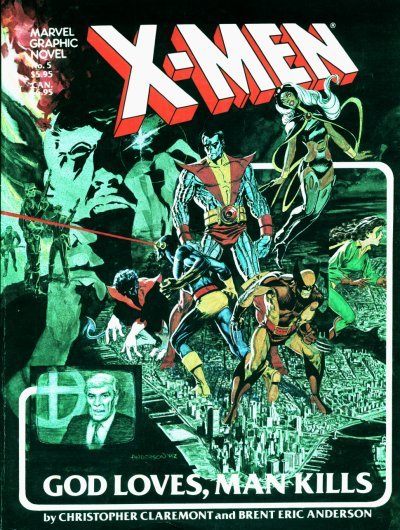
Though the embers of that had died down when ASM #300 was published in 1988 it was still there, as evidenced by the X-Men crossover Inferno in 1989 centred around the idea of a demonic invasion of New York city.

In this context the religious aspects of Brock’s character and how they are conveyed act as shorthand to the readers that Brock is ‘a religious lunatic’. As times changed perhaps that shorthand became less prevalent to consequent readers. However it is still patently obvious.
Dark Reflections
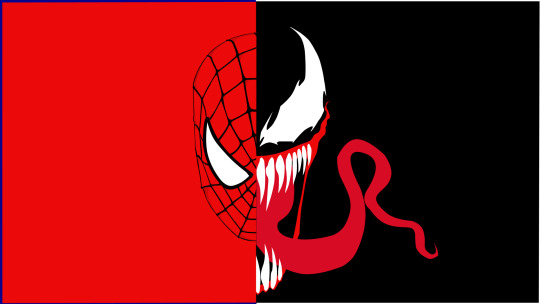
I stand by my statements from Part 3 that Michelinie’s primary conception of Venom did not involve him being a ‘dark reflection’ of Spider-Man. However by accident or design the character’s debut does grant him some traits that render him along these lines.
To begin with he obviously possesses Spider-Man’s powers, uses them for evil and does so whilst wearing a villainous version of Spider-Man’s costume that also has a darker colour palette. The basic ‘dark reflection’ villain starter kit.
Beyond this though Venom’s physicality and fighting style is different to Spidey’s. Peter is a muscular man with a lean build who uses his powers in combination with his intelligence (leading with the latter) to win battles. Brock by contrast has a bulky body build and relies upon overwhelming his opponents with his superior physical power to win battles, though he isn’t honestly stupid.
However where Venom is truly a dark reflection of Spider-Man is in contrasting their respective origins and motivations.
Brock is a foolish, immoral and possibly selfish actions in letting a dangerous individual roam free ruined his career. But he accepts no responsibility for what he has done, instead flimsily blaming a third party.
This led him to consider giving up on life until he gained power that he then used violently for the selfish goal of murderous revenge. It is a mission he at times carries out with a dark twisted sense of humour and feels is in it’s own sense heroic.
In direct contrast Peter Parker used his newfound power selfishly too, but for financial gain as opposed to anything truly violent or hurtful. He even resolved to use his financial gains to help a third party, his aunt and Uncle. Like Brock his ego and selfishness led him to make a mistake that allowed a dangerous individual to go free. And like Brock he paid for that act, but the cost was far larger than simply losing his career.
When the dust settled he accepted responsibility for his mistake and blamed himself for what happened and went on to do the same for other events in his life. This included many things that he wasn’t honestly responsible for. He then used his powers to altruistically defend life as much as he could, simply because he felt it was the right thing to do. And he never gave up on his own life no matter how heavy the burden became, often employing witty good natured humour to help him deal with things.
Or to really boil it right down, Spider-Man is a hero who embraces the responsibilities of his life and uses his powers to safeguard life, whereas Venom/Eddie Brock is a monster who doesn’t truly take responsibility for anything and uses his powers to endanger life.
I don’t know if that was truly David Michelinie’s intent in creating Venom. If it was then his interest and focus for the character was evidently elsewhere.
Nevertheless in this sense comic book Eddie Brock is not only a dark reflection of Spider-Man, but a damn good one too.
Creative Value
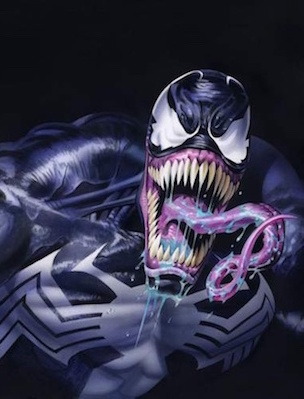
Eddie Brock in so far as his motivations are concerned amounts to a disturbed individual with an obsessive hatred for Spider-Man over an imagined slight.
From a creative perspective this is actually a pretty great conception for a Spider-Man villain than most people give credit for.
I’m sure many people reading this essay series will simply hand wave a lot of what I’ve outlined in prior instalments as:
He’s crazy so he can do anything. Lame!
However that is grossly oversimplifying what I’m saying.
A vital part of Spider-Man’s conception is that he is (relatively speaking) the everyman superhero who juggles his secret identity with the realistic ups and downs of life. Peter Parker’s secret identity not only serves to allow him to have those common life experiences, but also protect himself and those close to him from danger at the hands of his enemies
Of course these enemies mostly consisted of Spidey’s established rogue’s gallery of super villains. Readers could presume the numerous nameless common crooks Spidey had nabbed might seek vengeance upon him if they knew his secret identity
However Eddie Brock represented another side to Peter’s foes. He was the unseen enemy. One of the dangerous and disturbed individuals who wish to do serious harm to Spider-Man and his loved ones for irrational reasons.
This is not only very much in line with Spider-Man’s core concept as it is entirely realistic, but it is also pretty frightening. Perhaps it is even frightening precisely because it is entirely realistic.
Most of us do not have actual enemies in our lives who want to do us serious harm. But Eddie Brock represents how sometimes in life you can earn the ire of someone dangerous for no logical reason. Maybe something you did had an unpredictable tangential effect that negatively impacted someone. Maybe you just bumped into the wrong person. Or maybe you just happened to be in the wrong place at the wrong time.
In these ways the existence of Brock as a villain reinforces Spider-Man’s need for a secret identity. He just reinforces that need from a different, uncommonly tapped angle than one might expect.
Original Origin
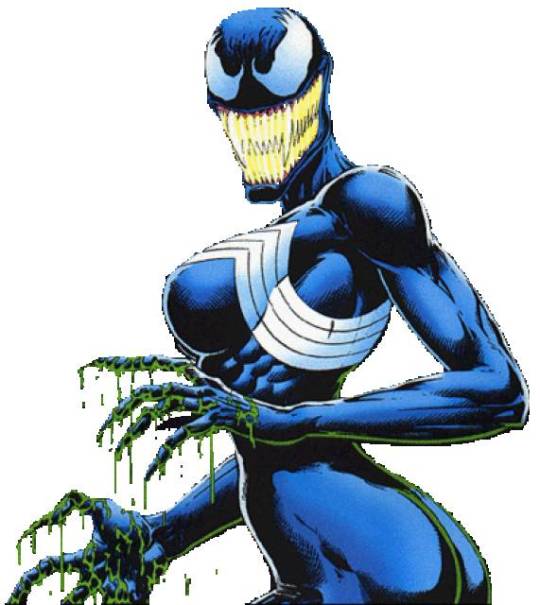
As I touched upon back in Part 1 David Michelinie’s original origin for Venom was very different from what we wound up with. Let’s revisit what he said in his own words.
Initially she [Venom] was a woman...The whole idea is that whenever I write a character I try to utilize the unique aspects of that character. And one thing Peter Parker had that no one else had was his spider sense...Someone flings at him from behind its a reaction he doesn’t even think about it, he ducks. And this has saved his life so many times I started thinking ‘Well, what if there was a villain who didn’t trigger that spider sense? How would he react? How would he cope with that?’
And they had already established in Secret Wars that the black costume didn’t affect Peter’s spider sense. So I started working out a character who would join with the symbiote costume and actually be a villain...
...My original origin story had been a woman who was pregnant and...her husband was trying to flag a cab as she was going into labour, and a cabbie was driving along looking into the sky at the Living Monolith, tying it into that graphic novel, [Michelinie wrote the Graphic Novel in question] where Spider-Man was fighting the Living Monolith...and he hits the husband and kills the husband...the shock of this sends to woman into premature labour and she loses her child, all because the cab driver was watching Spider-Man. So she became unhinged and when she got out she had this fanatical hatred of Spider-Man, blaming him for the loss of her husband and their unborn child. And that drew the symbiote to her and she became one with the symbiote and was going after Spider-Man...
Michelinie’s plans changed though when he was apparently told readers wouldn’t accept a woman fighting Spider-Man.
Many people use this original story as ammunition against Venom’s origin from ASM #300. Their points generally focus upon how the alleged problems with Venom stems from Michelinie having to come up with something different for his character at the eleventh hour.
However that really doesn’t quite add up when you really think about it.
Surely if Michelinie et al were conceiving their new male Venom at the last minute it’d make sense to just play out the same intended story but simply switch the roles and genders. That is to say that in the revised origin it was Eddie Brock who witnessed his (possibly pregnant) wife run over by a taxi driver who was too distracted by Spider-Man. Consequently he would then blame the wall-crawler for his loss?
But what we got in ASM #300, whilst retaining a few broad concepts from the intended origin (a stranger to Spidey blames him for ruining their life, bonds with the symbiote to kill him, etc.), is essentially a page 1 rewrite of the Venom character.
Brock’s origin and desire from revenge come from a radically different place from his female prototype. In fact they are actually much more complicated.
I do not mean more complex, I mean that the A>B>C chain of events forming his origin has more elements to it and less direct than Michelinie’s original version of Venom.
Compare and contrast
a) During a graphic novel your supposed to remember, a cab driver is distracted by Spider-Man swinging by>runs over pregnant woman’s husband>the shock of seeing this causes pregnant woman to lose baby>woman blames Spider-Man>woman becomes unhinged>woman bonds with symbiote and becomes Venom
To
b) Someone confesses to Eddie Brock that he’s a serial killer from this older Spider-Man story you’re supposed to remember>Brock publishes the story>Spider-Man catches real killer>Brock is fired>Brock is unable to get work other than sleazy tabloids>Brock blames Spider-Man>Brock contemplates suicide but is super religious so he goes to a church>symbiote finds and bonds with him and they become Venom
One is a lot simpler and more direct than the other right?
In other words it is unlikely that Michelinie just threw something together at the eleventh hour.
More than this though, many of the ideas underlying Venom’s motivations are still present in the original female (let’s call her Edwina) conception of the character.
· Both Eddie and Edwina’s origins tie into a previous storyline. The Death of Jean DeWolff and Revenge of the Living Monolith respectively.
· Both endure misfortune that Spider-Man is tangentially involved with but cannot reasonably be blamed for.
· Despite this both latch onto Spider-Man for ruining their lives.
· Both stories involve a third party more directly at fault for their misfortunes. For Edwina it’d be more logical to blame the cab driver and for Brock it’d be more logical to blame Emil Gregg or even Stan Carter.
Note what Michelinie also said in his rundown of Edwina’s backstory (emphasis mine).
So she became unhinged and when she got out she had this fanatical hatred of Spider-Man, blaming him for the loss of her husband and their unborn child. And that drew the symbiote to her and she became one with the symbiote and was going after Spider-Man…
‘Unhinged’ and ‘fanatical hatred’ a descriptors entirely applicable to Eddie Brock as well as Edwina. As I went to great pains to illustrate in prior instalments, Eddie Brock is a man not in his right mind. He is not someone who is operating along sane, rational or logical lines of reasoning, at least not the kinds most people live their lives by. Understanding this is the key to grasping Brock’s intentions as a villain and his motives for despising Spider-Man.
Michelinie’s recounting of Edwina’s backstory also arguably supports another facet of Venom’s origin: the idea of him being an everyday person and a stranger to Spider-Man. Like Brock Edwina was someone Peter Parker didn’t know. She was a civilian affected tangentially by his actions as Spider-Man and who then blamed him for an imagined slight. This touches on both the fear factor of Venom being someone who could exist in reality, the philosophy of Spider-Man as an everyman and arguably the idea of Venom as a stalker character.
Uncanny Origins #7
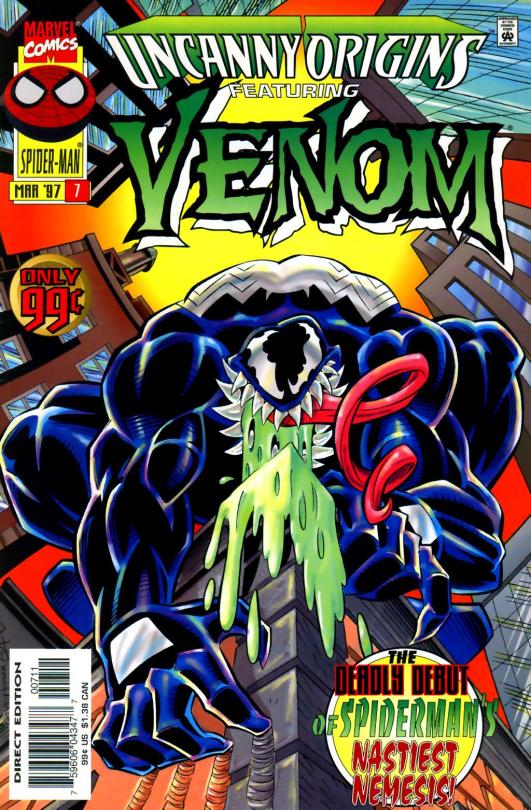
As I mentioned in the main body of the essay series, Uncanny Origins #7 is a retelling of Brock’s origin and other events in his life.
It is however more than likely non-canonical due to the various contradictions to older stories it presents. Nevertheless it does illustrate (perhaps more clearly than Amazing Spider-Man #300) a lot of what I’ve discussed about Brock from Part 7 onwards.
In the retelling you see
Brock’s ambition
His narcissism
His being called out for shoddy journalism (and thus by extension his lying about his skills in ASM #300)
The erosion of his self-esteem
His growing obsessive hatred of Spider-Man
How this was informed by Spider-Man’s costume
The religious context he views his transformation in
And of course Brock’s warped perception of reality and delusions. This is even called out by Venom himself when the story retells his transformation into an anti-hero
Note however that the retelling goes beyond the events of ASM #300
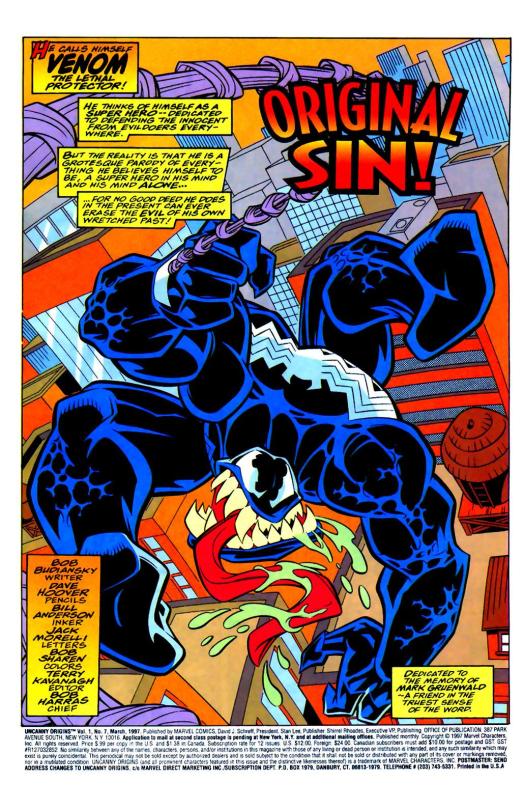
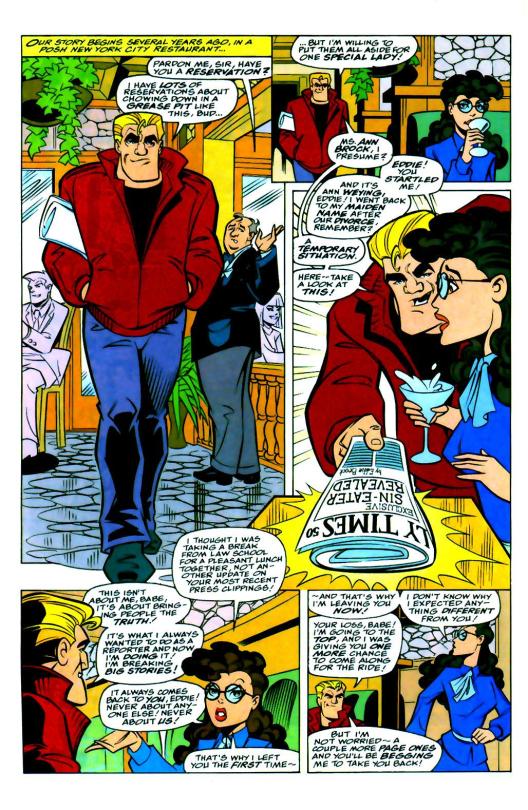

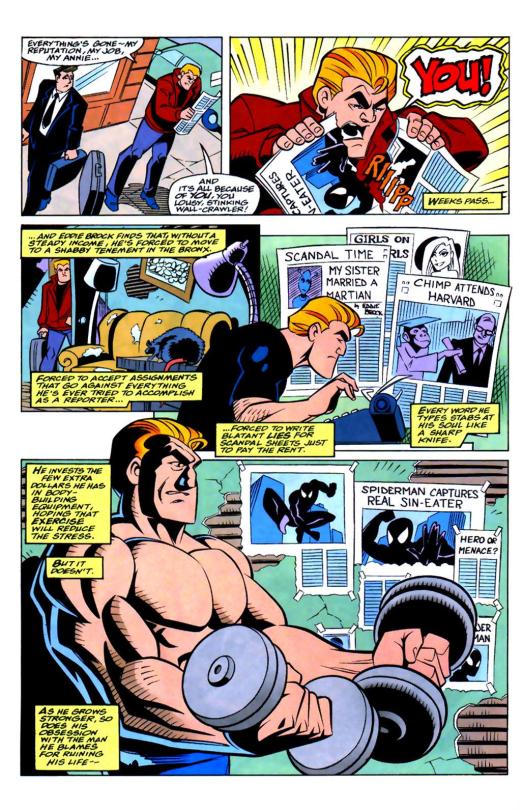
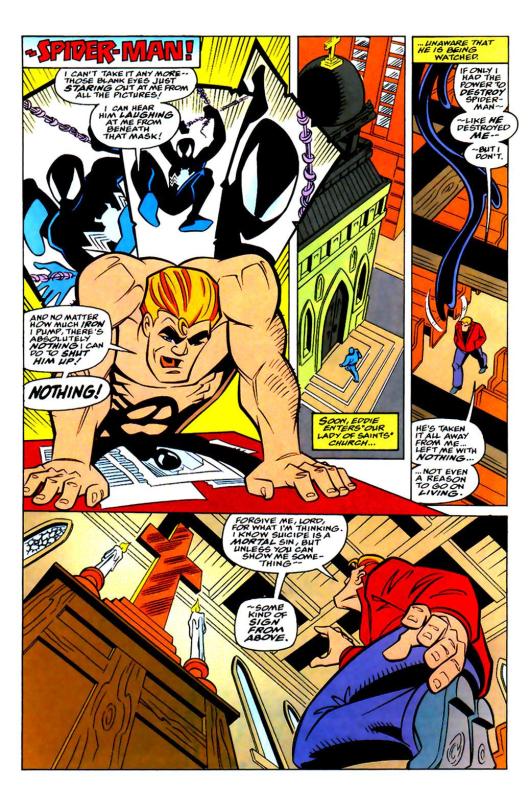
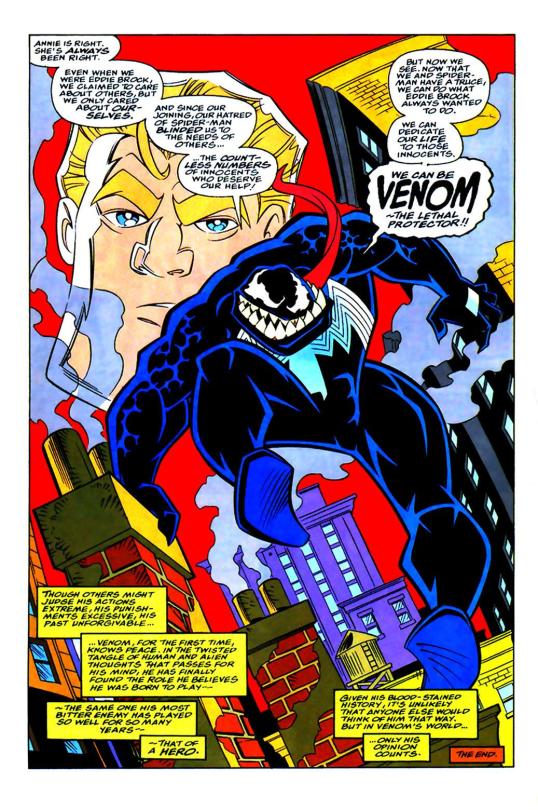
Some Circumstantial Evidence

There is some further food for thought to be considered regarding the ‘unsatisfying mystery’ of Venom’s identity.
First of all, lets bear in mind David Michelinie’s prior work. This is the man who co-created enduring characters such as Scott Lang, Taskmaster, Justin Hammer, James Rhodes and many others. This is the man who scripted/co-plotted what is regarded as the definitive Iron Man run. This is a writer who had at least around ten years worth of experience writing comics by the time he penned ASM #300.
With this in mind I find it extremely difficult to believe that a writer with this much experience would honestly make such a rudimentary misstep as to have a mystery story, then reveal the culprit as someone whom no one could have guessed because he was a complete stranger to the audience.
Even novice writers know enough about mystery stories via pop cultural osmosis to reveal the culprit’s identity as someone the readers already know, or at least could’ve become aware of in the course of the story.
It is therefore very suspect that such a massive and obvious mistake would be undertaken by a writer who’d been around the block a few times by 1988. In the past I’ve criticised the way Dan Slott handles his mysteries but even the flaws in his mystery storytelling never comes from revealing someone to be a complete unknown. His big reveals are genuinely reveals, with the culprit being someone the readers would be familiar with, even if they might not have been able to deduce them as the culprit in the first place
Then you have the fact that Michelinie spoke about the origin of Venom with critically acclaimed writer extraordinaire, Peter David.
Apparently a writer of David’s calibre felt no pressing need to point out the seemingly obvious oversight that Michelinie was resolving a mystery by revealing the culprit as an utter stranger to the audience. Less than a year before ASM #300 David himself had to resolve the controversial Hobgoblin mystery and as unsatisfying as this was to many people, he certainly didn’t just say it was someone no one had ever met.
Furthermore David has been on record as stating he really likes Venom and felt he had a good start as a character. Which is an odd thing for such a skilled and acclaimed writer to say about a mystery character’s identity being completely impossible for anyone to solve.
That is unless as I stated in Part 5, the Venom storyline was never intended as a legitimate mystery story in the first place.
This is also backed up when one considers that Venom’s presence in ASM #300 was apparently because then editor Jim Salicrup wished to debut a new villain.
Regardless, Salicrup seemingly didn’t feel the need to point out that the reveal of Venom’s identity was obviously unsatisfying as a resolution to a mystery storyline. One would imagine that as an editor shrewd enough to have made Kraven’s Last Hunt runt through all the Spider-Man titles and innocuously referenced recent issues in ASM #298, he’d catch such a glaring problem. And in catching it would demand the character’s identity be someone the readers were familiar with.
But he didn’t. Which makes quite a bit of sense if the point was not that he was the centre of a mystery so much as he was simply a new character.
Finally, whilst this doesn’t quite prove my points definitively I did in fact go so far as to personally ask David Michelinie directly about the issue of Venom’s identity.
ME: Mr Michelinie, I am currently writing a series of articles analyzing Venom’s earliest appearances and wondered if you could be so kind as to answer a query I had about Amazing Spider-Man #300.Essentially I would like to know why did you choose to make Venom/Eddie Brock a previously unknown character?
DAVID MICHELINIE: It was a new character, a clean slate, one with a fresh background, origin, personality and motivations. Why would I want to limit what I could do with it by making it a previously known character?
I strongly feel the above further cements that Venom’s status as a new character was the real mission statement behind him, as opposed to being the subject of a mystery story.
Spectacular Misconceptions

In Part 3 I discussed how the readers mistook some of the core ideas behind Venom and saw something different in their place. This then led to them misunderstanding and misinterpreting the character.
However this phenomenon is not exclusive to the comics.
On the (exemplary) Spectacular Spider-Man Animated Series Eddie Brock was a supporting character, with his arc throughout the first season gradually building to his transformation into Venom.One particularly talked about scene for his character was in episode 11, ‘Group Therapy’.
In the episode Eddie Brock takes Mary Jane Watson out on a date to get back at Peter Parker for several perceived slights.Their date consists of a less than safe motorcycle ride wherein Brock rants about Peter in an angry and unhinged manner, including mentioning the death of their parents.
Many viewers of the show felt the scene was out of nowhere and inconsistent with the character as had been established. This point was made particularly in light of earlier episodes such as episode 3 ‘Natural Selection’, in which Brock (a normal young man) risked his own life to try and fight the Lizard.
However the intention by the makers of the show was to convey that Brock was in fact somewhat unhinged and had a death wish. His risking his life against the Lizard wasn’t meant to be taken as an act of heroism but as an example of very dangerous recklessness, feeding back into his unsafe driving later on.All of which was meant to underscore how this show’s version of the character was somewhat in love with death due to the loss of his parents.
For whatever reason the idea and intentions of the character as presented didn’t quite reach many members of the audience and the same is true of the comic book Venom too.
Professional Opinion
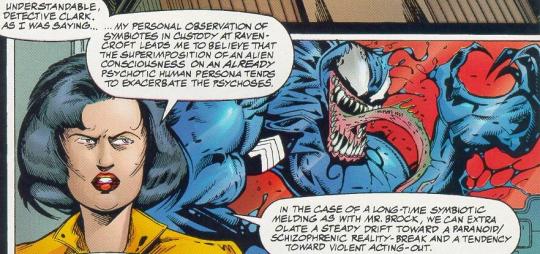
The character of Venom is near and dear to me and it is because of that affection that I was inspired to write this essay series and make it as comprehensive as possible.
To that end when it came time to tackling the sticky subject of Brock’s motivations I wanted to be able to speak with a certain degree of authority.
Consequently I actually printed off the relevant pages of Eddie Brock’s earliest appearances from Web of Spider-Man and Amazing Spider-Man #298-300, wrote up some background context presented them to someone who’s studied, taught and worked in the field of psychology, even writing a psychology curriculum. They also have a keen interest in literary analysis but relatively little knowledge of comic books and Spider-Man in general. This is because as a 58-year-old resident of the United Kingdom their potential exposure to the wall-crawler was limited at best.
We then had a few lengthy conversations about Brock’s mental state and motivations and they helped me to pin down many of the points I’ve made in the course of this essay series.
It was this psychologist who outright diagnosed Brock as someone experiencing Delusional Disorder as part of a serious psychosis.
They also corroborated that were we to take Brock and Spider-Man as analogues to real life people that Venom’s origin and motivations were entirely believable, even ignoring the influence of the symbiote.
Conclusion
Venom/Eddie Brock as presented in Amazing Spider-Man #300 is categorically NOT the poorly written or poorly conceived mess of a character that people have painted him as since 1988.
Rather the character’s perception has suffered due to two key intertwined factors.
Unwarranted presumptions of the character then exacerbated by somewhat poor communication of the concepts underpinning him.
However when one truly examines the character it becomes obvious that there is little wrong with him inherent nature or intentions as a character.
Venom as originally conceived is in fact a pretty clever and psychologically layered character who posed a very potent threat for Spider-Man and had a unique place, even iconic, place in Spidey’s already superlative rogue’s gallery as he touched on themes and concepts close to the heart of the character.

Part 11
#Venom#Venom symbiote#symbiote#symbiotes#marvel#marvel comics#David Michelinie#Spider-Man#Peter Parker#Eddie Brock#The Vindication of Venom#Doctor Octopus#Otto Octavius#Green Goblin#Norman Osborn#Peter David#Jim Salicrup#X-Men#Ghostbusters#Tom DeFalco#Ron Frenz#Brian Michael Bendis#Guardians of the Galaxy#Spider-Girl#Spider Woman#MC2#MC2 universe#Mayday Parker#May Parker#Venom: Space Knight
12 notes
·
View notes
Text
Black Sails 4.06 Notes
I think I died during that episode. Black Sails seems determined to keep one-upping itself over the course of it’s last season in just how far they can push the characters into tragedy. Remember when Randall was spitting in Muldoon’s bowl, or when John’s ‘cooking’ gave everyone the shits... Or when Captain Naft was arguing with Mr. Fraiser over the details of two paintings... Ahh good times.
I will say though that if 4.06 has an overarching theme it’s about everyone having to live with the choices that they have made.
“You chose. Live with it.”
Billy is answering for the suffering he caused the slaves through finishing the raid on the Underhill estate, Silver is living with the consequences of choosing Flint and Madi, Max is having to live with betraying Jack and Anne, Eleanor with her own choices, Rogers (still living unfortunately) with letting the Spanish indiscriminately destroy Nassau etc.
Eleanor’s plan might have worked if she hadn’t been married to bloodthirsty psychopath of the century. I don’t know if i’m angry at Eleanor for being so deluded about Rogers despite evidence pointing towards the contrary or just overwhelmed by how tragic the whole thing is. Flint’s the one who leads Eleanor and Madi to Miranda’s house, a previous sanctuary. The house and all its contents that Charles had claimed was so fragile. It used to be bright, warm and welcoming but now the interior is quite dark.
“One can be happy that way can’t they? A life of isolation and uncertainty as long as it is lived with someone you love... And who loves you back.”
You could take this to mean so many different things, I wonder if Eleanor was planning to leave and raise her child somewhere away from everything, away from Rogers. Spoken in Miranda’s house as well it calls back to how for the longest time she and Flint only had each other to rely upon, only each other who knew the truth about everything that happened in London. For Madi it could have also meant giving up the war, running and hiding, that it would have been okay because John was enough for her.
HOLD THE PHONE FOR A SECOND. Didn’t Zethu say in an interview that Silver asking Madi if he was enough for her would be re-addressed? How can they do that if she’s dead? Arrhh I don’t know what to think. It seems so unlikely that she made it out, I don’t want to believe she’s dead but I don’t want to get my hopes up.
Unless Madi’s reply to Eleanor’s question, “it is”, was supposed to be the confirmation that if it came to it she would leave with Silver, and she’s not just referring to her and her mother living in the Maroon camp. Following this line with a tiny smile to herself, possibly taking a moment to imagine living somewhere peacefully with John. Which just makes everything just that tiny bit more tragic doesn’t it? *Excuse me while I go grab more tissues*.
I love that Jack still manages to throw a tiny element of humour into the mix, telling everybody to leave because there’s a Spanish invasion in such a nonchalant way. Jack chooses to wait and see if any of their allies survive instead of running straight away. For all his flaws, Jack does have his occasional moments of unselfish-ness.
And now to broach the uh... the scene. You know the one I mean. That did upset me. It was unforgivably brutal in the way the soldier relentlessly attacked Eleanor. The way it was framed though... The fight is two against one, he’s already been shot/stabbed by the British guards, Eleanor manages to shoot him again but two of our main female characters still manage to be killed off in one fell swoop. That is if Madi is dead, there’s a tiny chance Madi did escape but I doubt she would have left Eleanor. I get why people are angered by this, I am angry too, especially for Madi whose end seems to be so senseless. I thought maybe Eleanor would use the last of her strength to save Madi... but she couldn’t.
Eleanor survived one Spanish raid on Nassau, but she does not survive the second. A place she gave so much up for, a place that she refused to give up on, it’s tragically poetic almost how she dies in the sand that would never love her back. Flint’s lie is a final mercy to her.
My faith in the writers though isn’t totally destroyed. They have a track record of treating everyone brutally yes, but they’ve never made a habit off killing off main characters just for the sake of shock factor - these things usually come with consequences. I wonder if Mrs. Hudson will tell Rogers that Eleanor was pregnant.
For someone with no experience of war or fighting, John seems to be handling the battle pretty well. Oh God Flint’s face when John asks where Madi is. These two are killing me in this scene. In this moment... It’s like everything is over for John, what’s the point in fighting anymore? BS is laying the tragedy on thick. I wonder how Flint managed to convince John to leave with him rather than just stay at the estate.
Jack adding “It will take some time before we fully know all we have lost today” is another one of those lines that carries so many different meanings for everyone.
FUCK YOU ROGERS. JUST... FUCK YOU. YOU ARE A MONSTER. This whole thing is actually sort of reminding me of something Abigail wrote when she was onboard the Walrus:
“What happens if that man decides the theater no longer serves his purposes and he lets the monsters loose?”
Which is essentially what Rogers has done, he’s been playing a part, others have commented on the idea of Rogers putting on a sort of stage production during his time on the show, and it seems it’s come to the point of screwing the facade and just letting the ‘monsters’ in to indiscriminately burn it all down. Great plan Rogers, great plan *sarcasm*.
Stop it Luke Arnold. Stop it. This scene with Flint and Silver is gorgeous. The way Flint says ‘I’m sorry’ the same way Silver has done about the deaths of Thomas and Miranda - completely honest and open. The way Flint so carefully chooses his words before gently speaking. The lingering shoulder touch that communicates what a thousand words cannot. It speaks volumes about how close the two have gotten, and how they’re probably going to be tied up in this until the bitter end (their bitter end I suppose I should say).
“It’s not your fault.”
I honestly can’t tell who Silver is trying to convince here. It’s just as likely that he’s trying to convince himself that it isn’t Flint’s fault that Madi is dead (we think) as he is Flint. One other way I’m starting to look at it though is that Silver is in fact addressing himself, trying to force himself to believe that despite the warnings he received, it isn’t his fault.
Billy’s words from earlier must be coming back to haunt him: “live with it.” Billy did warn him about Flint being a risk to Madi, and it’s not difficult to believe that John is now going over and over that warning in his head, conflicted over who is the one at fault here.
What was that line I love way back in season 1 about making guilt go away? This is just a baseless speculation, but we might be getting a glimpse into one of Silver’s long-used coping methods here. Again I am insatiably curious to find out what happened to Silver prior to season 1.
I don’t know if it’s just me, but it seems as if in the last scene in the Maroon camp, there’s something about the Queen’s expression that suggests she has hardened herself to the idea that Madi might not survive. She is an experienced leader, her duty is to her people, and she does not ask where Madi is. Maybe she knows. Or maybe this is just going to be one of those times BS skips over what might have been a significant moment. Maybe they know we’ve had enough tragedy.
I also love the way the episode ends on the look exchanged between Flint and Silver at the news of the revolution being underway. After all they’ve been through, when every part of Silver wants it to be over, they need to keep fighting. This war he’s been swept up in shows no signs of stopping, and I have a bad feeling that Silver is going to grow to resent Flint over it.
Extra thoughts:
- Wait so where’s Billy gonna go? He doesn’t stay with the pirates, he must escape the estate, so I guess he’s just going to find somewhere to run and hide?
- So what does Max plan on doing? Obviously she’s going to tell Eleanor’s family what happened and then use their influence and standing to what, see Rogers arrested? Driven out of Nassau? This would be probably as close to a victory as they’re going to get. I don’t appreciate her shouting at Jack about it though, at least he gives as good as he gets xD
- Ah so Madi’s mother never let the cache leave the island. So it’s not just currently chilling in the middle of the ocean. How would they have even known where to dig it up though?
- Thank you for about 3 minutes of Anne. More next time please.
8 notes
·
View notes
Text
On Continuing to Root for the Cardinals
By Adam Felder

Earlier this season, SBNation ran a contest asking baseball fans to write why they rooted for their team. I don’t know who actually won. I read some really good submissions from Cardinals fans on Viva El Birdos, though, so I’m hoping one of them got something neat out of the contest.
I didn’t submit anything. I couldn’t really come up with a compelling hook that made my Cardinals fandom special. Despite most evidence to the contrary, I really try to keep my mouth shut and my fingers off the keyboard if I think I don’t have something interesting to say, so I sat this one out.
That’s not to say I didn’t at least start writing something to see if it’d go somewhere. The closest I came to a compelling narrative was my love of the Cardinals community, meaning all the various people I’ve interacted with and in some cases befriended due to nothing more than a shared love of the birds on bat. It’s some six-degrees-of-Kevin-Bacon level of detail not worth getting into here, but I’m relatively certain I’m not where I am today career-wise if not for my engagement with a bunch of really awesome people in the St. Louis Cardinals baseball community.
My love of this baseball community is having to do an awful lot of heavy lifting of late, because I’m genuinely not sure if the organization itself—that is, St. Louis Cardinals, LLC—is worth rooting for. Frankly, I’m disgusted with the organization and that has far less to do with the quality of the on-field talent than it does the off-the-field shame this organization provides.
Which leaves me with a question I never thought I’d have to ask: do I believe it’s defensible for me to be a Cardinals fan in 2017?
Let me pause here real quick to make clear that the emphasis in the above question is the “for me.” Fandom is a personal choice, and so long as you’re not beating the hell out of some poor bastard for daring to wear the jersey of another team, I’m not gonna begrudge your rooting for your team of choice.
That said: for my own part, I don’t agree with the “keep politics out of sports” sentiment that so many fans hold. I don’t know how one can look at all the various municipal budget-destroying stadium deals, the NFL/US Military symbiotic sponsor relationship, the appointment of team owners to ambassadorships, President George W. Bush’s explicit mention of and intervention on performance-enhancing drugs in MLB, MLB’s antitrust exemption, etc., and conclude that sports are apolitical. Sports are big business, and big business is political. It just is, and you’d have to be willfully blind to not see it.
That said, I suspect the “keep politics out of sports” sentiment is less a function of not seeing the relationship and more one of recognizing it, but just wanting to enjoy a ballgame and not be inundated with all the awful shit that permeates the news in 2017. I get that. It is exhausting to look at all of this and try and stay engaged and informed. Thus, I’m not going to think less of anyone who just wants to watch a Cardinals game and not deal with the news cycle—though given the performance of the 2017 squad, I’m not sure how relaxing that approach would be anyway.
Point being, the question I’m asking is a personal one, and not one I expect anyone else to apply to him or herself. The awesome people I talk to in the Cardinals community will continue to be awesome should they continue to support the team in light of its indefensible actions. Viva El Birdos itself, which has a fairly strict “no politics” rule, is managed and edited by some of the smartest and most insightful writers baseball has to offer.
All that said, am I okay with rooting for this organization?
I don’t see how I can get myself to “yes” here. The Cardinals’ shameful and tone-deaf failure to credential an Outsports editor to cover Christian Day at Busch Stadium is only the latest in a series of failures that demonstrate the organization is uncaring at best and malevolent at worst.
On the off chance someone’s reading this who doesn’t know the backstory: the Cardinals invited 2011 postseason hero Lance Berkman to speak at the event. Berkman has some pretty reprehensible views on LGBTQ rights, and has used his celebrity to push specific anti-LGBTQ legislation.
If the Cardinals wanted the day (which has existed in some form for decades; I distinctly remember it growing up in St. Louis) to be a celebration of faith, they could have turned to any number of Christian players on the active and former roster. Adam Wainwright, for example, has been a featured speaker at this event in the past, and if he harbors beliefs that stray into the controversial/political realm, he’s smart enough to keep them to himself. There are any number of Cardinal players past and present who are generally awesome people of faith. And then there’s Berkman.
For the “but free speech” crowd: Carlos Martínez’s salacious social media likes were also him expressing himself, and the club came down on that. That the Cardinals invited Berkman was a failure of research. That the Cardinals didn’t rescind the invite after his views were obvious to all was a far worse mistake.
Still, that mistake could have been interpreted charitably as the Cardinals recognizing they’d stepped on a landmine but thinking they’d make the situation worse by intervening. Indifference and cowardice aren’t exactly virtues, but they’re a lot better than endorsing discrimination.
By failing to credential Outsports, the Cardinals made clear this wasn’t indifference. It was actively endorsing discrimination. It also proved the organization to be staffed by tone deaf morons. Had the Cardinals credentialed the editor, here’s what happens: he goes to the game. He writes his story. Life goes on. It’s a lot like what actually happened minus the tagline of “Cardinals explicitly refuse to credential Outsports.com” that got all the attention. It’s discriminatory, but also just really damned tactically stupid.
The club’s excuse that “blogs and websites” don’t get credentials is utterly laughable. It’s 2017, and if you hadn’t noticed, print journalism has been in its death throes for years. (Truth be told, so is a lot of digital journalism; all these organizations laying off writers in favor of a video-only strategy that will blow up in their faces isn’t a good sign at all.)
Further, it’s not as if Outsports is some tiny little operation nobody has heard of. From the metrics publicly available, the site gets somewhere in the neighborhood of half a million people to it each month. For context, stltoday.com, the website for St. Louis’ local paper, is somewhere in the two million range. I don’t know what subset of that two million is purely for the paper’s sports coverage, or more to the point, the paper’s baseball coverage.
Point being, Outsports.com has a large enough digital presence that “we don’t credential blogs and websites” is a moronic policy. Arguably, it’s not a policy at all and just an attempt to create a media-friendly excuse for “we don’t want your kind here.” After all, it’s 2017–the lines between print and digital don’t really exist anymore, and the Cardinals have no problem credentialing folks like Craig Calcaterra and Jeff Passan, whose NBCSports and Yahoo Sports platforms are purely digital.
I don’t know Chris Tunno, the person who rejected the credentials request. But from what I can see of him on Twitter, he’s, uh…not the person that a club that wasn’t negligent would want as their mouthpiece.
I don’t want to make this about Tunno, though. I don’t know the dude and one person shouldn’t have the ability to ruin my fandom. And, indeed, there are any number of other aspects about this organization that are awful.
As near as I can tell, the organization did essentially nothing in response to Tyler Dunnington’s minor league teammates openly discussing the best way to kill gay ballplayers. Sure, there was a lot of talk about this being “taken very seriously,” but unless the club managed to run a stealth investigation and not talk to a local media that seemed entirely disinterested, it was performative outrage. Nothing happened. I don’t expect billion-dollar organizations to champion civil rights, but I expect them to at least give a damn and take action when employees and members or a discriminated-against group are actively facing death threats.
And then there’s the failure of the club to leverage its power to aid flood victims this past spring. Chase did a much longer discussion of the issue here, but the short version: the St. Louis Blues and even the River City Rascals used their ability to reach fan communities to help with flood relief. The Cardinals, with a much larger ability to help, did not. The Cardinals are a St. Louis institution; it’s shameful that the club didn’t intervene to be worthy of that title, instead choosing to be another aloof business.
I’m treading on already-covered ground when I bring up the club’s failure to disavow (or say anything) about the moronic “Darren Wilson/David Freese” racists outside Busch in 2014, and that there’s clearly a way to not be an asshole when it comes to this sort of thing.
Point being, for a “civic institution,” the Cardinals’ indifference-at-best, endorsement-at-worst approach to business is a shameful one. It’s hard to root for an organization that clearly cares so little about its fans. It’s a lesson we have to keep learning over and over again: the #brands are not our #friends. If “corporations are people,” they’re the most indifferent and aloof of all people, concerned only with making money rather than the well-being of the community in which they make that money.
Even on the field, the club seems content to cash in on mediocrity, with no clear plan in place for improving. Mike Matheny, the man who was hired with no managerial experience and who manages as such despite being in the job for six years, has a three-year contract extension. John Mozeliak and the newly-promoted Mike Girsch preside over a thoroughly mediocre team that…did literally nothing at the trade deadline, the paralysis all-but-ensuring another year like the current. Seriously: how the hell could the club do nothing?
There’s not much to root for here. I don’t like the management and operation, and the on-field product is pretty terrible too. To reward it with my time and attention doesn’t seem defensible.
And yet I’d give up quite a bit were I to quit the Cardinals. This is, present grotesqueness aside, the same organization that had team President Mark Lamping send teenage Adam a bunch of parking passes in downtown St. Louis so I could afford to attend the season tickets I’d saved all summer for (but was too stupid to realize that parking cost money too).
By wins and losses, it’s a better team than the late-90s McGwire-and-Lankford-and-scrubs team that I watched with my brother when we weren’t even on speaking terms and really only had Cardinals baseball left to mediate.
Hell, there are even a couple still-in-decline-but-I’ll-always-be-a-fan holdovers from the miracle 2011 squad. I can only hope that I have the same fond memories of Tommy Pham and Carlos Martínez in ten years as I do of Yadi and Waino.
But the biggest thing I’d miss, and the thing that will still keep me coming back? It’s the same community. I’m not sure how to interact with Cardinals Twitter and the writers and bloggers I’ve befriended if I’m not at least following the Cardinals. We don’t always talk about baseball, but that’s the common thread through which all other conversations start.
These are invaluable relationships. Several of those bloggers helped apply enough pressure on the Cardinals that the team hosted its first ever LGBT day this season, prying action out of the indifferent monolith. Perhaps if I’m lucky and skillful enough, my continued presence in this community will help steer the organization in a less-crappy direction, both on-field and off.
I can’t just walk away despite all the reasons the club’s given me. But, if there’s anyone out there reading this in the organization…my god, do better.
0 notes